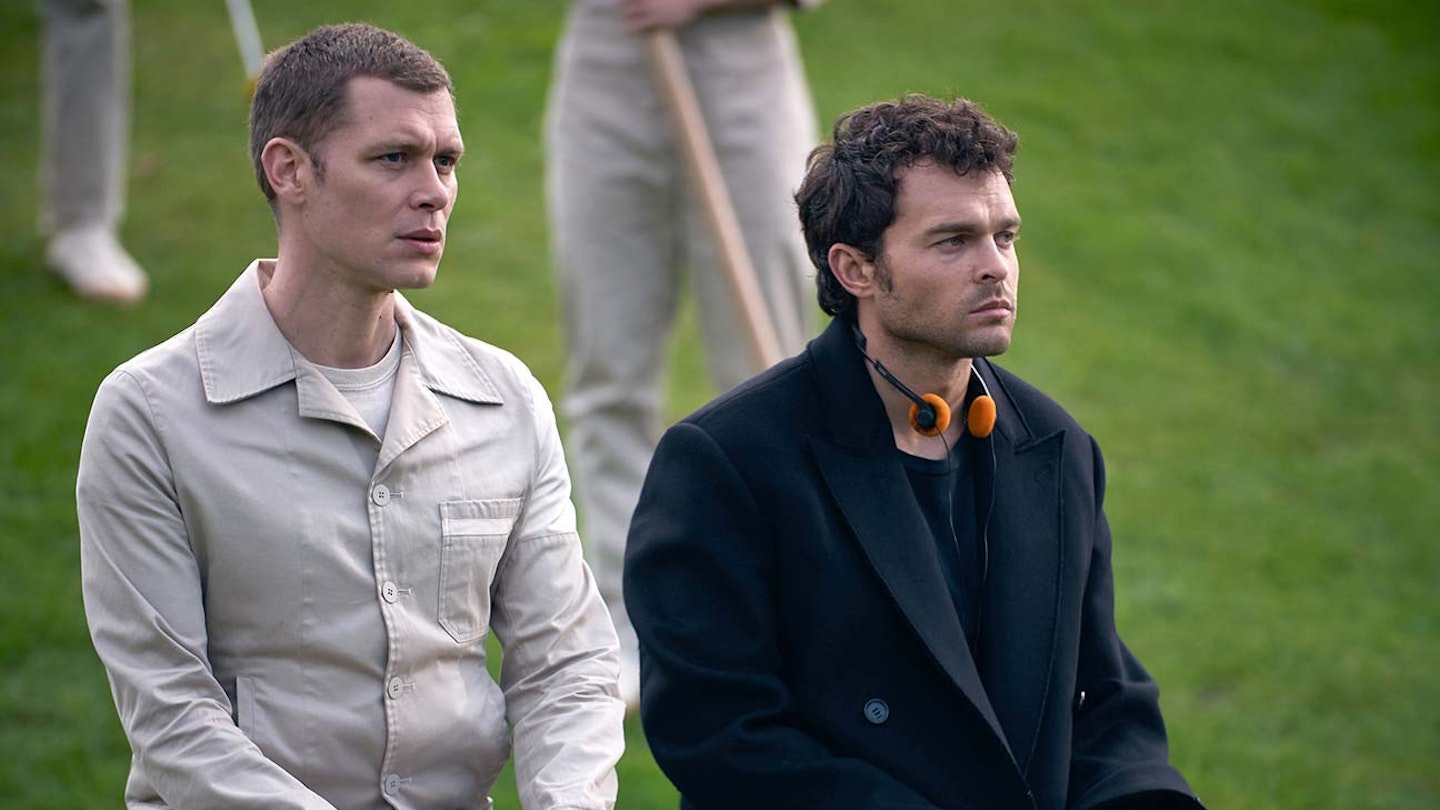With its preponderance of heaving bosoms and well-honed buttocks, this take on Aldous Huxley’s sci-fi classic feels at times like you’ve stumbled into an after-hours orgy at the world’s least hygienic Apple store. Sex and soma (a mood-balancing drug popped from Pez dispensers) are the principal pleasures in New London, you see, its population of khaki-clad sheeple kept perpetually (if artificially) content. Alphas make decisions, Betas bring the fun, Gammas provide the catering, and lowly Epsilons clean up the mess. It’s a neat dystopian order that is thrown into disarray when alpha Bernard (Harry Lloyd) and beta Lenina (Jessica Brown Findlay) return from an ill-fated trip to the exotic Savage Lands with a refugee ‘savage’ (Alden Ehrenreich) in tow.

As John is inducted into New London he soon becomes flavour of the month, his volatile temperament, curious notions (monogamy, family), salty language and emo-black tailoring sending ripples through society. The novel (written back in 1932) undergoes a fair bit of updating here, with an all-seeing artificial intelligence and always-online social network making the story more resonant to a 2020 audience. It asks questions about privacy, consent, class and digital connectivity, although the sub-Westworld doom-mongering around the evils of A.I. are well worn.
It’s when the political thrust of the story asserts itself that Brave New World loses momentum.
The series’ first half, with its eventful set-up and subsequent fish-out-of-water antics, is compelling, the protagonists allowed considerably more life and texture than their literary counterparts. Findlay brings both steel and an irrepressible curiosity to her mould-breaking Beta, while Lloyd has tremendous fun with the painfully awkward Bernard (his early attempts at throwing a punch are gloriously maladroit). Ehrenreich, while unnecessarily mopey at times, gives John a hard, petulant edge and gradually overcomes having been soundly upstaged by a near-unrecognisable Demi Moore, as his mother, in the show’s early episodes.
It’s when the political thrust of the story asserts itself that Brave New World loses momentum. The society’s rules of no privacy, no monogamy and no family seem loosely enforced at best, and John is left free to sow chaos seemingly at will. While we’re invested in the relationship aspect, the political through-line feels thin and half-hearted by comparison, causing interest to wane as it moves increasingly to the fore.
From its glossy plastic décor to future-Brutalist architecture and flamboyant, 3D-printed evening wear, Brave New World is beautiful from start to finish; it’s just a shame the same level of care wasn’t applied to the show’s allegorical elements. Not nearly as provocative as Huxley’s portentous tome, this is diverting while it lasts but, perhaps appropriately, is far more concerned with fleeting pleasure than any lasting impact.
